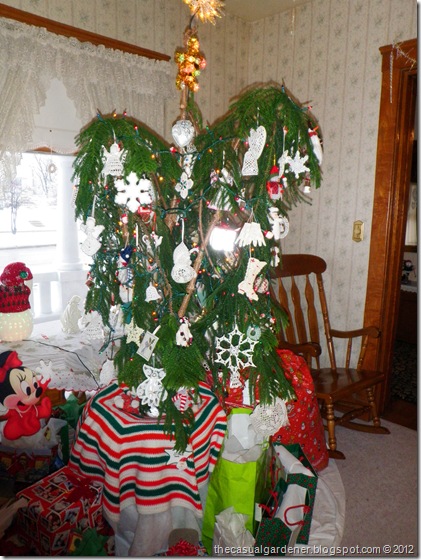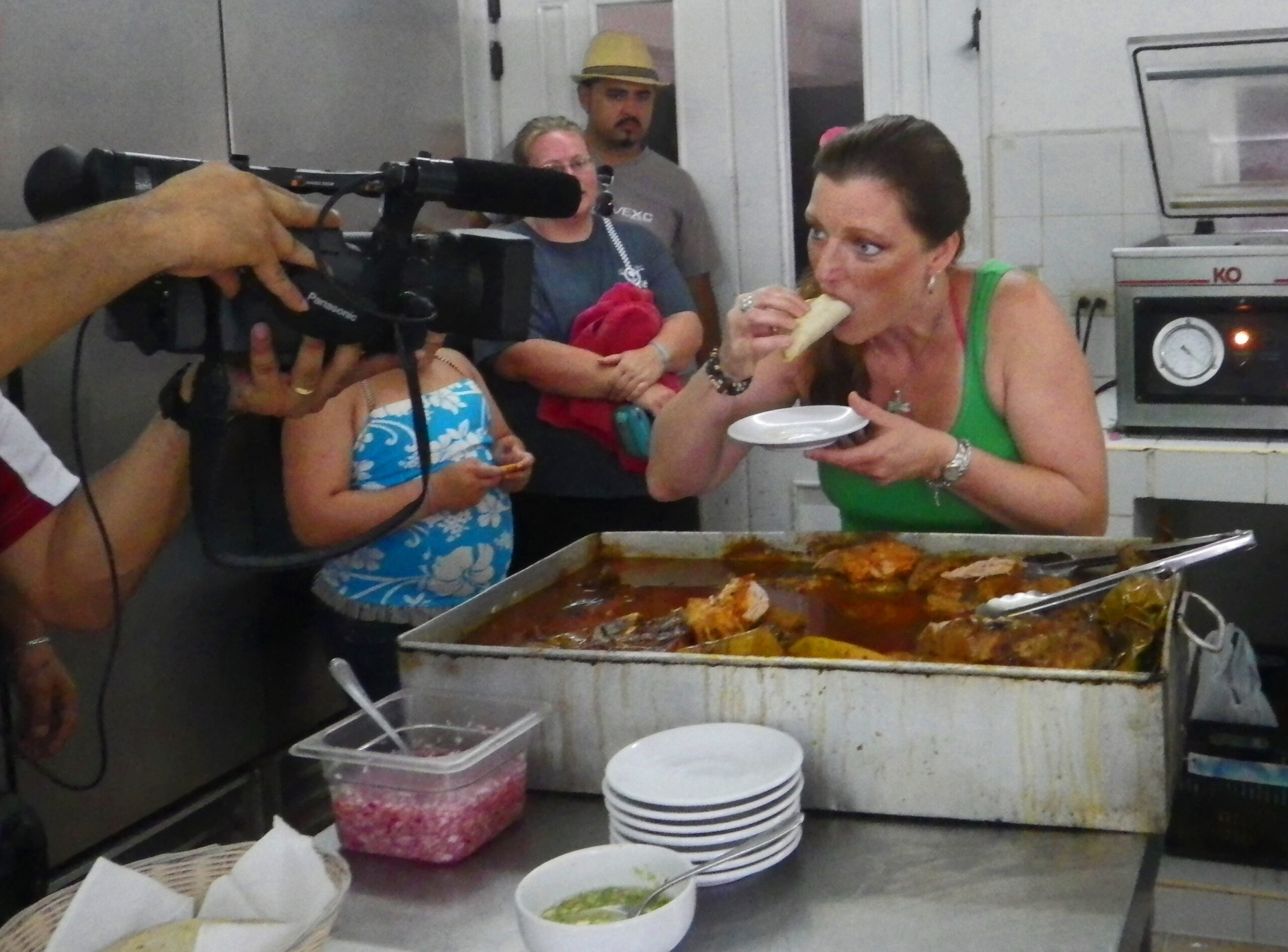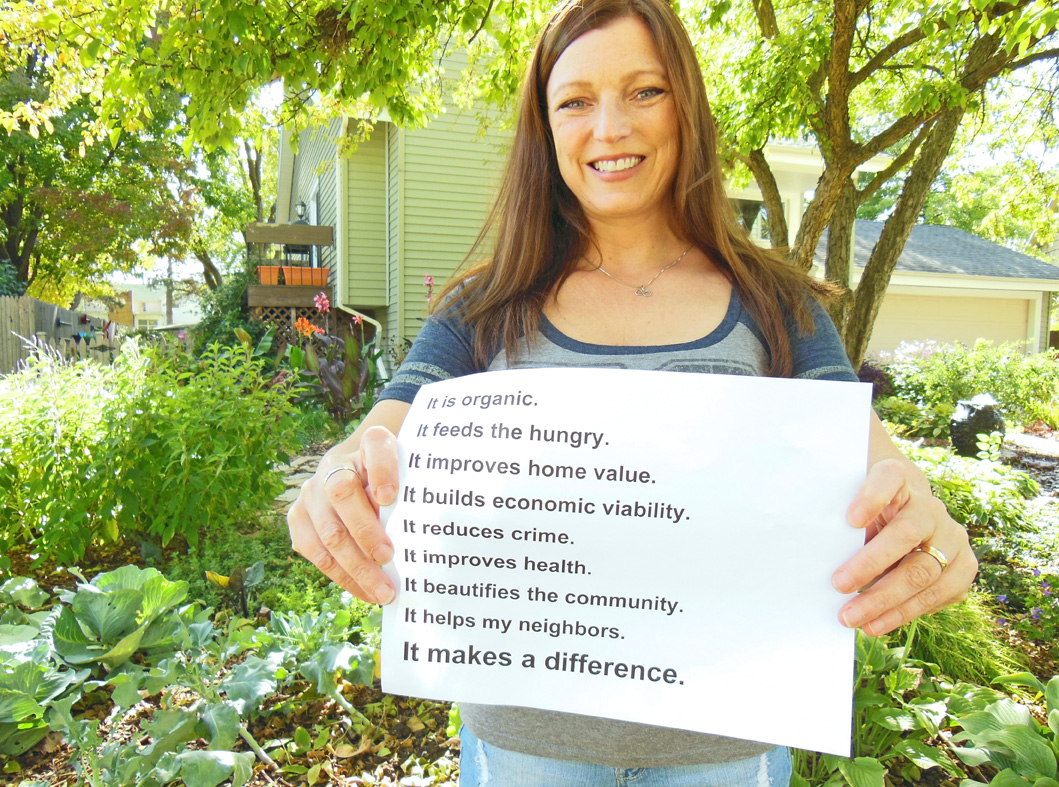How To Recycle Your Christmas Tree: A Happy Ending
Yesterday was A DAY! If you recall, I wrote a post on proper Christmas Tree Recycling by my garbage and recycling service, Waste Management Company. By noon I had received 250 + emails, countless phone calls, and comments on my Facebook page from my Mayor and people from countries all over the world. By afternoon City Hall was phoning me and Treehugger.com picked up the story nationally. Treehugger.com asked the question, “Are your Christmas Trees REALLY being recycled?”
Wow.
First off, let us address Christmas tree recycling itself. Here are some handy-dandy ideas to get you started –
HOW TO RECYCLE YOUR CHRISTMAS TREE
- Community Composting Programs– Contact your city to see if your trash company has a Christmas Tree recycling program. If your city does not have a program, speak with your city officials to see how you might make that program happen.
- Mulch– Chop your own tree into mulch using a wood chipper, let the chips set out and decompose over winter, then use it as mulch in the spring.
- Bird Sanctuary– Remove all the decorations from the tree and set it out in your back garden with orange slices, popcorn, and peanut butter wreaths attached. It will make a great bird feeder and sanctuary through winter. In the spring break apart as yard waste.
- Soil Erosion– Christmas trees make good soil erosion barriers. Check with your local park district or land management group to see if they will take the tree and use it for their river shoreline stabilization efforts.
- Insulation– Cut the limbs off of your Christmas tree and use them as added winter protection on your garden beds. In the spring, simply slip the limbs into a yard waste container for curbside pick up for your community composting program.
- Get a Live Tree In The Future – At the top of this story you see a photo of a Norfolk Pine tree which was kept indoors for many years. Every year my mother-in-law would weigh the limbs down a bit and decorate it as our family Christmas tree. It stayed indoors as a houseplant year round and was perfect as a holiday decoration. We called it our little Charlie Brown tree.
RESOLUTION OF CHRISTMAS TREE NON-RECYCLING IN WARRENVILLE, ILLINOIS – HOORAY!
It turns out that Tamika, the woman I spoke with at Waste Management Company (WM), inaccurately told me that Warrenville recycled its Christmas trees. You see, across the nation, WM recycles trees for many cities, and I thought my city was one of them because Warrenville is very environmentally progressive compared to other small towns. It is a common practice among hundreds of cities, so Tamika also thought Warrenville recycled its Christmas trees.
Guess what? Warrenville did not have recycling of Christmas trees in the city contract with WM and the trash man was just doing his job. I was shocked.
Once we figured this out I began getting telephone calls with the question, “WHY is our city not recycling Christmas trees?” Good question. It is good for the environment, saves landfill space, and makes sense. Employees at Warrenville’s City Hall were also concerned. There were a lot of discussions. And phone calls. And strong words.
In the end, something miraculous and wonderful happened. Warrenville asked WM if they would collect our city’s Christmas trees over the next few weeks for recycling during WM’s normal Christmas tree pick-up season. Beginning today there will be a special truck sent for Christmas tree recycling and Warrenville has a full-on AWESOME Christmas tree recycling program for the rest of this season. It did not have this yesterday, but it does today.
In the future, Christmas tree recycling will be built into the City of Warrenville’s template contract for all future trash and recycling bidding.
That means that Christmas trees in our community will be recycled forever from now on.
HOORAY!
Thank you to all of the hundreds of people that contacted me yesterday. It was more than I ever expected. Most of the emails, comments, and calls were supportive because this is a subject that touches so many people’s hearts. To those of you who want to learn more about recycling Christmas trees in your community, please start with the above list and feel free to contact me – I am happy to help you with Christmas tree recycling in your neighborhood.




BIG gold star for you, Shawna. Reminded me of the old saying 'Better to light a candle than curse the darkness.' Your one act of calling attention to the situation led to real action being taken and created a positive result not just for you but for the people of Warrenville, and beyond. You get this week's “Mover and Shaker' award.
This is great news Ms. Shawna! I'm thrilled to hear it!! WAY. TO. GO!!
YAY! Thank you all. I'm so proud of my city for adopting this awesome policy!
Shawna
Nice moves and congratulations! The town where I live actually maintains a community mulch heap: take your own containers and carry away what you want. Seems like such a simple, low-cost program to run: if you're picking up waste anyway, deliver it to a chipping facility and residents will take care of ultimate disposal.
I use as Norfolk Island pine as a living tree as well! 🙂 Congrats on nudging WM along!
Way to go Shawna!
WOW. Nice work!
Thanks for all the love!!!
Woo hoo!
Shawna
outstanding Shawna…our every little action helps 🙂
Congratulations great work Shawna it lends to the saying that making a difference starts at home! You've shown that in it's full glory…
I'm also pleased to know that the Waste Management employee (driver) was doing his job and not cutting corners!
This is freakin' amazing! Way to go Shawna and your little city! It's amazing what can happen when people work together and make a little noise, ha! Fantastic!
Thanks! No denying it – I'm thrilled with the result!
S
Shawna, I am a bit confused by the celebration of this “victory”. Are we to celebrate diesel fuel going into the air by these trucks that are going around picking up a small amount of trees versus keeping the air clean, not to and letting the tress naturally decompose in a land fill? Not to mention the noise pollution cause by these trucks. I did not see too many Christmas trees around Warrenville to justify the air and noise being polluted. I respect your vision, but I think the big picture was missed. There are many more Eco-friendly solution such as keeping a tree up in a backyard for the birds and then cutting it up for ground covering later. A nice, quieter, air friendly solution and maybe more worthy of a safe-the-earth victory. Again, respect your vision and fight, but maybe there were other things to do more celebration worthy.
Betsy,
I have the same concerns that you do about CO2 versus tree waste. However, one thing you did not mention is landfill space, organic matter in landfills, and the problem of liquid leachate which exits the landfills.
Composting organic matter is better than putting organic matter – whether it be food, yard waste, or bushes and trees – into the landfill because of the leachate problem we have with every landfill.
The reason why I am concerned about organic matter in landfills is two fold —-
#1 – trees and brush take a much longer time to degrade than say grass, so trees takes up precious landfill space until it can degrade. When it degrades it does not get reused, it just ends up being an additional component in a landfill versus mulch or ground up in compost, which can be reused to help nurture and fortify more growth in nature.
#2 Yard waste and trees may be broken down (biodegraded) by microorganisms within the landfill. In the presence of rainfall and oxygen, aerobic microorganisms break down the organic materials in the landfill (such as food waste, yard waste, and brush), producing carbon dioxide and liquid. Carbon dioxide is released as gas – you see landfills with pipes that release it into the air contributing to our CO2 greenhouse problem. The water is the critical component here. When water is released it must drain out of the landfill. So CO2 is rising, and water is falling within a landfill.
When the liquid drains out it filters through thousands of garbage items (like batteries, car oil, and hazardous chemicals) and becomes poisonous and non-consumable. It is not water that you can drink. THEN someone has to collect that liquid coming out of the landfill, filter it, clean it, then redistribute it into our water system for reuse somewhere OR let it run into the Mississippi and ultimately the Gulf of Mexico.
That costs taxpayers MILLIONS and MILLIONS of dollars. A landfill is a complex eco-system all on its own and the poisonous waters that are spewed out of the landfill from “melting” food waste, yard waste, and organic waste is the bi-product of many organic items being thrown into the landfills – Christmas trees contribute to this problem (and so do our food leftovers and much more).
So Betty, it's much more complex than just discussing trucks throwing CO2 into the air – there are layers upon layers of complicated issues here. A landfill is not a compost bin – the bottom layers, for instance, do not receive the right amount of Oxygen, so organic items turn to liquid.
My ultimate concern is to bring awareness to the wasteful nature of throwing out a simple tree. It's not just one tree that makes a problem. It's the millions of trees which are thrown into the landfills that contribute to the massive problem of landfill space.
I, personally, think that the landfill companies would be likely to NOT support Christmas tree pick up and claim that it wastes too much CO2 so they do not have to inconvenience themselves with more staff on this type of a collection shift. However, perhaps I'm wrong. Perhaps they have done studies on this that can justify this understanding in a way we can all grasp. I would like to see the scientific studies on this to validate the balance of things if you can find it.
I think a great resource for this information would be Kay McKeen from S.C.A.R.C.E. because she's held all the studies on this in her hand. She spoke to our state legislature about banning all organic matter in our landfills.
Ultimately I am not a scientist, I am only repeating what I have learned from my mentors in the environmentalist community. But I have done the research as much as a layperson can and truly believe that recycling our trees is better than not.
I hope you'll continue to do research on the matter and let me know what you find.
Thanks for your great commentary – I'm glad to see you taking such an active interest in tree recycling!
Shawna
Nice work – Think global act local.